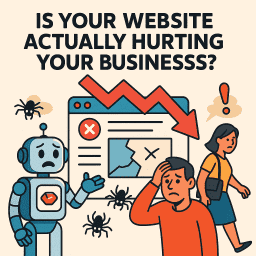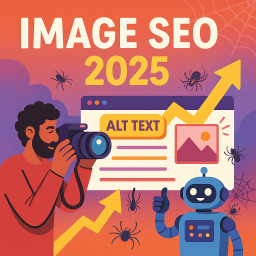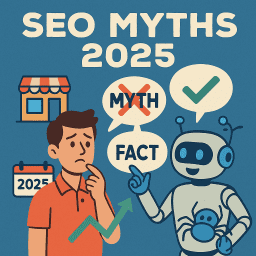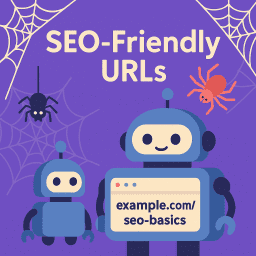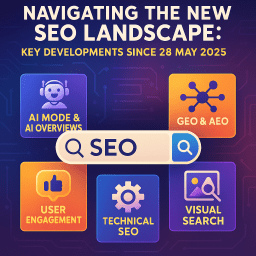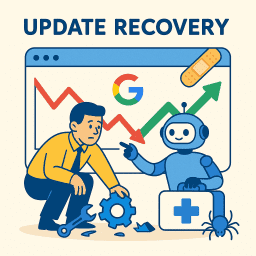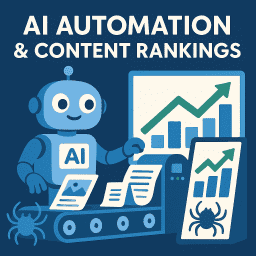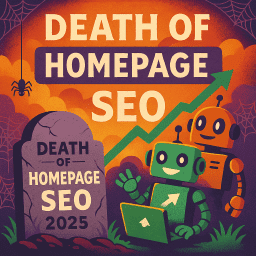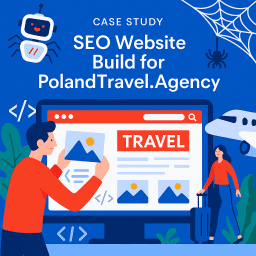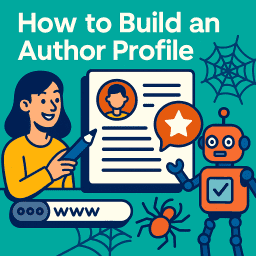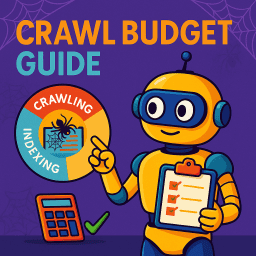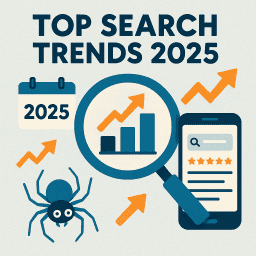Why Gambling Sites Struggle to Rank on Google in 2025
🎰 A deep dive into SEO challenges faced by gambling and iGaming businesses
🎰 iGaming SEO: How to Survive Google’s Toughest Niche
The gambling, casino, and iGaming affiliate sectors sit in one of the most competitive and volatile corners of the internet. They’re high-value, high-risk, and often considered controversial. And Google doesn’t make life any easier.
This article explores why gambling-related websites have a harder time ranking, how Google’s algorithm treats them, and what SEO strategies can work despite the uphill battle.
📜 A Brief History of Gambling and Search Engines
Gambling has been a part of the internet almost since its inception. In the early 2000s, search engines were relatively naïve — websites stuffed with keywords or cloaked content could easily rank. This led to a flood of low-quality gambling affiliate sites dominating the SERPs.
Google noticed. And as early as the Florida Update in 2003, the search engine began cracking down. Over time, Google’s algorithm evolved to prioritise trust, authority, and transparency — values the gambling world often struggled to demonstrate.
🚫 Why Google Is Wary of Gambling Websites
- ⚠️ Regulatory restrictions: Gambling is regulated differently across countries, making it hard for Google to apply consistent standards.
- 🕵️ High spam rate: The industry is filled with black-hat tactics, PBNs, doorway pages, and spun content.
- 🔞 Age and ethical concerns: Gambling carries reputational risks — not just for Google but for advertisers and publishers in general.
- 🎯 Affiliate saturation: Hundreds of thin-content affiliates compete for the same keywords, lowering the overall content quality of the niche.
📉 The Risk of De-Indexing and Manual Penalties
Gambling websites are frequently subject to:
- 🛑 Manual actions for unnatural outbound links
- 🚷 De-indexing for thin or duplicate affiliate content
- 🔍 Algorithmic downgrades for failing to meet content or trust thresholds
These issues are especially common among new sites or those that don’t establish clear E-E-A-T (Experience, Expertise, Authoritativeness, Trustworthiness).
📊 Key Algorithm Updates That Hit Gambling Sites
- Panda (2011): Targeted thin, low-quality content — a death blow to thousands of affiliate pages.
- Penguin (2012): Cracked down on spammy link profiles, many of which plagued gambling sites.
- Medic Update (2018): While focused on YMYL sites, it also impacted niches where trust and authority were lacking.
- Product Review Updates (2021–2023): Applied indirectly to affiliate content, encouraging first-hand experience and unique insights.
- Helpful Content Updates (2022–ongoing): Gambling affiliates with rehashed, AI-spun or low-value content saw major drops.
- March/May 2024 Core Updates: Broad devaluations of low-trust niches, particularly impacting overseas or unregulated operators.
🔬 How Google Evaluates Gambling Content Today
In 2025, Google evaluates gambling websites using a mix of technical and quality signals:
- 📑 Comprehensive, transparent content (e.g. odds, licensing info, game mechanics)
- 🏛️ Legitimate business info (address, ownership, licensing, responsible gaming)
- 🔗 Natural, high-quality backlinks — not just PBNs or sponsored placements
- 🗣️ Unique, user-first copy instead of affiliate boilerplate
- ✅ Trust signals: HTTPS, privacy policy, real testimonials, contact forms
📍 Common SEO Challenges Faced by Gambling Affiliates
- 📉 Sudden ranking volatility from algorithm shifts
- 🧾 Over-reliance on expired domains or black-hat link strategies
- ⚙️ Technical issues like crawlability, duplicate pages, or improper redirects
- 🔄 Content churn: constant re-writes needed to stay relevant and avoid duplication
- 🌍 Jurisdictional SEO problems — what ranks in one country might be illegal in another
💡 What Actually Works: SEO Strategies That Still Deliver
- 🧠 Topical authority: Build out deep, original content clusters about each game, provider, and jurisdiction
- 🎓 E-E-A-T optimisation: Add expert bios, compliance credentials, author by-lines, and case studies
- 📽️ Multimedia: Embed video reviews, walkthroughs, or user-generated content to enrich the experience
- 📲 Mobile-first UX: Gambling users often search via mobile — optimise for speed and clarity
- 🔁 Ethical link-building: Build long-term partnerships, guest posts, and earn links through digital PR
- 📆 Freshness: Keep content and compliance info updated — Google values this heavily in regulated sectors
🧭 The Future of Gambling SEO
As Google leans harder into AI-generated overviews, entity understanding, and user trust signals, gambling sites must mature rapidly. The days of spinning up 50 low-value review pages with affiliate links are over.
The future favours those who:
- 🏢 Build real brands
- 🧾 Show compliance, transparency, and user care
- 🎯 Offer genuine value beyond just affiliate commissions
More than ever, SEO in this niche will be a long game — but a winnable one with the right approach.
✅ Conclusion
The gambling and iGaming affiliate space is one of the toughest verticals in SEO — and Google has made that clear time and time again. But it’s not impossible.
Sites that invest in real content, user value, compliance, and trust can survive and even thrive. But those that rely on shortcuts, outdated tactics, or deception? They’ll keep vanishing from the SERPs — overnight.
If you’re in this space, don’t ask how to trick Google — ask how to earn its trust. That’s the only sustainable strategy left.
📝 Recap and Clarify: Post-Specific FAQs
Why do gambling and iGaming sites struggle with SEO?
Gambling sites often face stricter algorithmic scrutiny due to their YMYL (Your Money or Your Life) nature, which means Google holds them to higher trust and safety standards.
Are gambling websites penalised by default?
Not directly, but they are heavily scrutinised. Even legitimate sites may struggle to rank if trust signals, authority, or compliance are lacking or inconsistent.
What is de-indexing, and why does it happen?
De-indexing means Google removes a page or domain from search results. This can happen due to spam signals, thin content, cloaking, or compliance issues—often affecting gambling sites.
Why is algorithm volatility so high in the gambling niche?
Gambling keywords are highly competitive and often targeted by spam. Google’s systems are constantly adapting to detect manipulation, causing frequent fluctuations in rankings.
How important is E-E-A-T for iGaming SEO?
Extremely important. Google requires strong signals of Experience, Expertise, Authoritativeness, and Trustworthiness—especially for industries like gambling where harm is possible.
Can affiliate gambling sites still rank well in 2025?
Yes, but only if they focus on original value, transparent disclosures, high-quality content, and building long-term authority—shortcuts and automation alone won’t work anymore.
What are common SEO mistakes in the gambling sector?
Common issues include spun content, over-reliance on backlinks, ignoring compliance, hiding affiliate links, and lacking user-focused information on games or betting.
Does geo-targeting impact SEO for gambling websites?
Yes. Search engines consider regional laws and licensing. Sites need tailored content, local backlinks, and geo-specific metadata to rank in target countries or regions.
How do I protect my gambling site from de-indexing?
Ensure all content is original, disclose affiliate links, follow webmaster guidelines, avoid black-hat techniques, and regularly monitor Google Search Console for warnings or drops.
What’s the best SEO strategy for long-term iGaming success?
Build a brand, invest in evergreen content, focus on user experience, publish expert-led resources, comply with laws, and create trust through transparency and consistency.




